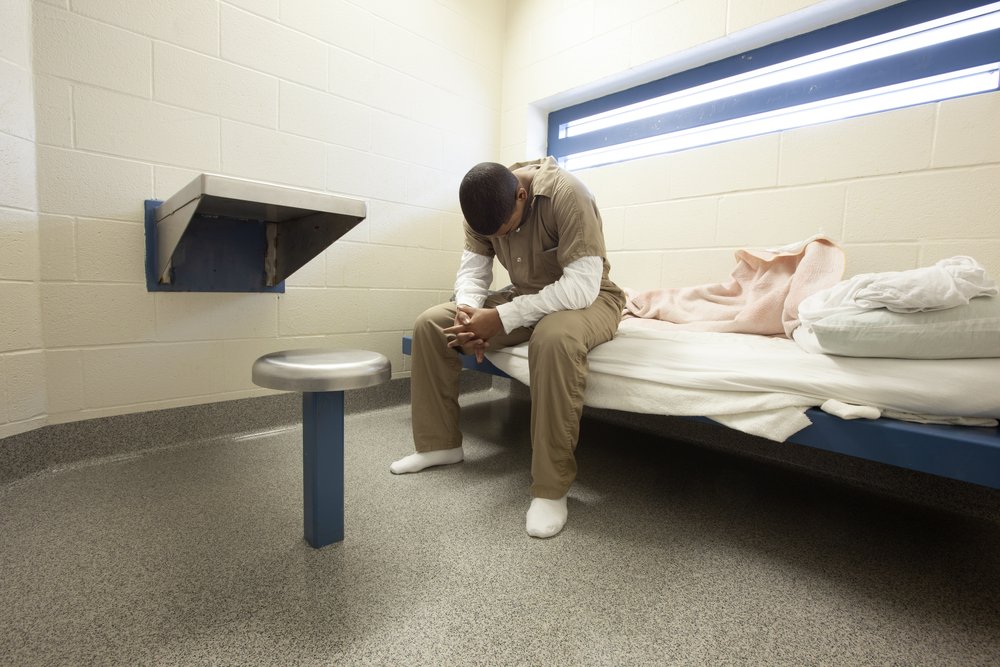
Louisiana’s Office of Juvenile Justice recently banned at-home holiday visits for incarcerated youth. This will keep children from visiting home for Christmas, Thanksgiving, Mardi Gras, and other major holidays. OJJ cites an undisclosed number of alleged infractions as their reasoning for this new policy. However, what they fail to acknowledge is that home visits are vital to OJJ’s children. They allow incarcerated kids to maintain connections with family and facilitate a smooth transition back into society once released.
“It’s good for incarcerated kids to see what they are missing at home,” says LCCR Youth Advocate Jarrett Brinson. “It’s good for them to see something that they can work towards.”
A home visit (or furlough) is defined as a temporary, authorized release that can be provided as a privilege to incarcerated youth who have met certain requirements. In Louisiana, eligibility for a holiday furlough is already highly restricted. An incarcerated youth must: attend three family sessions with prison officials, wear an ankle monitor at all times, and submit to a drug screening before and after their leave. Several other conditions must be met, including having no pending charges, no previous unsuccessful furlough, and a low-risk score.
Serena Hughley, LCCR’s Youth Justice Fellow, shared a story about her client “Emilio,” a teenage boy in OJJ custody who has been negatively impacted by the new blackout dates. Emilio has consistently met all the eligibility requirements, and yet he has been denied every furlough request he has applied for since July 2024. Each time he tried, the facility would assign a date too close to a holiday and his request would be denied. The lack of communication between OJJ, who determines the blackout dates, and the facility, which assigns furlough dates, meant that Emilio was refused furlough multiple times without any wrongdoing on his part. This was extremely frustrating for him; all Emilio wanted was to go on the furlough that he had more than qualified for. Denying Emilio and other kids the opportunity for a furlough not only blocks their connection with family, but it also harms their case when they go before the parole board; one of the factors the board considers is whether the child has had successful home visits.
Furloughs can be a therapeutic part of the rehabilitation and reentry process. Home visits allow children to maintain a close relationship with their parents and other loved ones during a difficult time in their lives, and that connection has shown to be a vital component to success after incarceration.
Furloughs are also an important part of facilitating the process of transitioning back to everyday life after incarceration. “It’s practice for living independently and knowing the correct decisions to make,” says LCCR’s Reentry Specialist Shon Williams. “It shows them the value of family structure and the freedom that’s been taken from them while they are in prison.”
According to the American Institutes for Research, when formerly incarcerated students were well-connected to their family, their school, and social environments, it can lead to a decrease in reoffending. Fostering positive relationships for youth, their families, and their communities is not only beneficial for the child, but it also reduces recidivism.
OJJ’s decision to collectively punish every incarcerated child in Louisiana for the actions of just a few is unnecessarily cruel. It means that children as young as 14 are missing spending Christmas and other cherished holidays with their families—missed time that they can never get back. The holidays are already an especially lonely time for incarcerated youth, and keeping kids from their families will not help their rehabilitation nor make our communities safer. We implore OJJ to reconsider this decision on holiday furloughs, and LCCR’s attorneys will continue to advocate strongly for home visits on behalf of our state’s incarcerated youth.